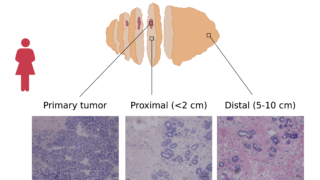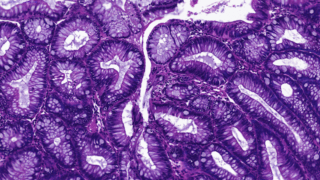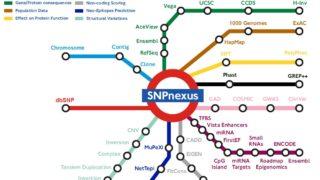Tag: Bioinformatics
Search News
Categories
Archives
Dissecting complex biological pathways with machine learning
19th July 2021
We spoke with Group Leader Dr Jun Wang and Postdoctoral Researcher Dr Anthony Anene from Barts Cancer Institute’s Centre for Cancer Genomics & Computational Biology about their most recent publication. Published in Patterns, the paper describes the development of a machine-learning tool called ACSNI that can be used to predict tissue-specific pathway components from large biological datasets.
Read moreSNPnexus in the fight against COVID-19
8th February 2021
Researchers from Barts Cancer Institute, Queen Mary University of London, have released a web-based tool called SNPnexus COVID to streamline the analysis of host genetic sequencing data and allow for the identification and prioritisation of genetic variants that may impact an individual’s susceptibility to and the severity of COVID-19 infection.
Read moreBiological clues in tissues surrounding breast tumours
9th September 2020
A new study has identified molecular characteristics in ‘normal-looking’ tissues surrounding breast tumours that may indicate whether breast cancer is likely to return following surgical removal of the tumour.
Read moreIBD and bowel cancer
29th April 2019
April is Bowel Cancer Awareness Month. We recently spoke with Dr Kit Curtius about her work which focuses on understanding how normal tissues evolve to become cancerous, with a particular interest in gastrointestinal pre-malignancies such as inflammatory bowel disease.
Read moreStudy links widely-used drug azathioprine to skin cancers
14th September 2018
A drug used to treat inflammatory bowel disease and arthritis, and prevent organ rejection in transplant patients, has been identified as an important contributor to skin cancer development in a study by researchers from Queen Mary University of London, including our Barts Cancer Research UK Centre (BCC) Bioinformatics team, the University of Dundee and the Wellcome Sanger Institute.
Read moreSNPnexus: Assessing the impact of genetic variation
30th August 2018
A team of researchers from BCI’s Centre for Molecular Oncology, led by Prof Claude Chelala, have made new developments to SNPnexus- a computational tool that allows for the assessment of the functional effect of sequence variants within the genome.
Read more





